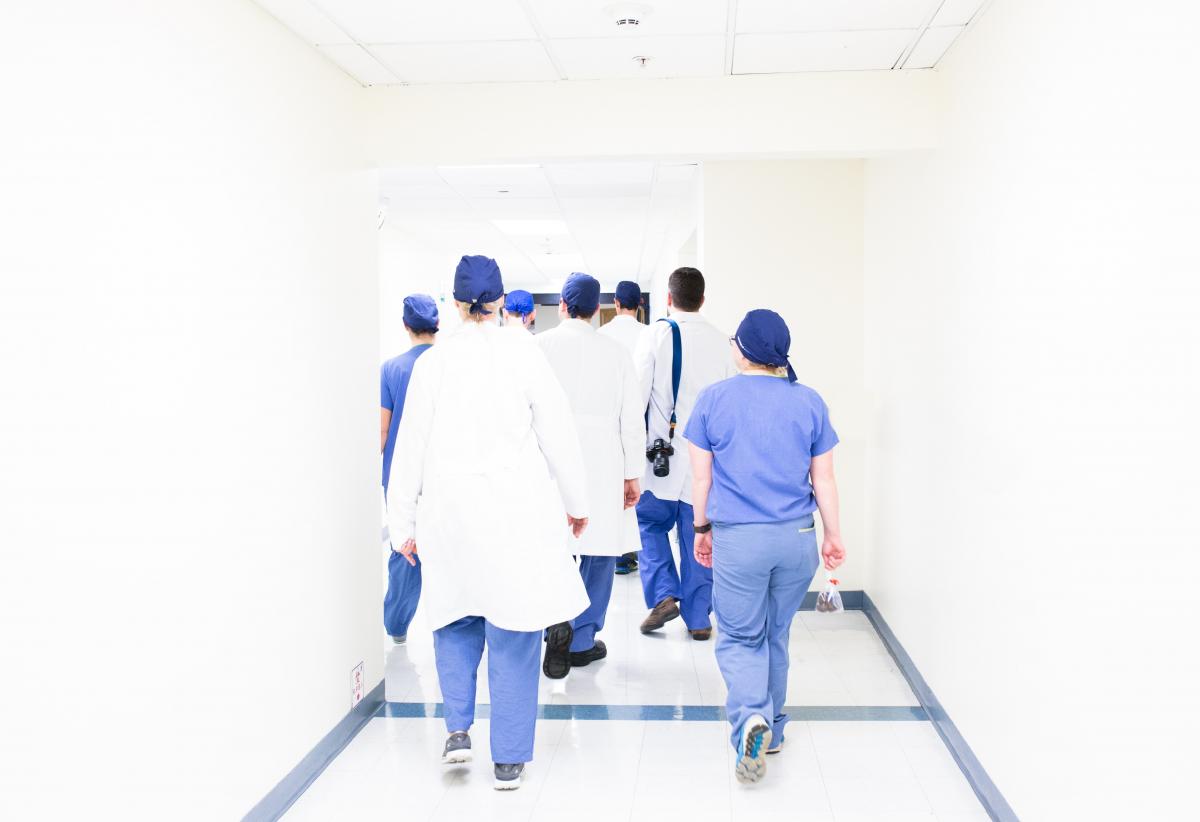
8 Common Injuries for Healthcare Professionals
Every day, healthcare professionals work hard to care for others from regular check-ups to severe injuries and diseases. A healthcare worker is anyone who works within the healthcare industry, which includes hospitals, clinics, nursing facilities, and health centers. These individuals may be doctors, nurses, or paramedics.
As the healthcare industry only continues to grow, individuals who work within the industry are more likely than ever to face injury, disease, and other risks. Most healthcare professionals spend the majority of their time walking, standing, lifting and moving patients, and more. On-the-job injuries for nurses, doctors, clinicians, and paramedics happen almost too easily and often.
Their care of others sometimes comes at the cost of their own health, especially when they experience one of these common injuries. Most work injuries fall under a few umbrellas such as musculoskeletal injuries, sharps injuries, or hazardous drug exposure. Each of these injuries is serious and should be reported to the employer for worker’s compensation or an eventual personal injury case.
8 Common Injuries for Healthcare Professionals
Within the healthcare sector in the United States, the Centers for Disease Control and Prevention (CDC) calculates that there are more than 18 million workers with almost 80 percent of them being women. Every day, these workers are exposed to many hazards, regardless of whether or not they work in a hospital or offer at-home care.
Overexertion/Repetitive Stress
Injuries related to musculoskeletal disorders are much more common in healthcare professionals. In fact, OSHA has data that shows that healthcare workers are more than seven times as likely to develop an overexertion stress injury.
Manual Lifting Injuries
Many healthcare professionals are required to transfer patients from beds to wheelchairs or to reposition their bodies. This manual lifting can cause injury.
Needle Sticks
Within the healthcare industry, healthcare workers are routinely using needles or other sharp instruments for different care procedures. This can result in the dangerous transmission of diseases.
Injuries due to Violence
Hospital workers and other caretakers are at a much higher risk of being assaulted while working because these hospitals, health agencies, and clinics have a high number of people, the possibility of criminal care, and sometimes robberies.
Slips and Falls
While healthcare professionals prefer to provide the care needed in response to slips and falls, they often are also at risk of falling when water or other liquids are spilled on the floor.
Sprains and Strains
Very common for healthcare workers are injuries that include sprains and strains. Not only in ankles, but these injuries can also occur throughout the back.
Slipped Discs
While transferring or lifting a patient, healthcare workers can experience a slipped disc, which is the tissue that cushions the spinal bones.
Infectious Diseases
From needle sticks, healthcare professionals are at high risk of experiencing bloodborne diseases such as HIV/AIDs, Hepatitis B, Hepatitis C, and others.
Healthcare professionals are likely to experience other viruses, infections, broken bones, head injuries, and so many more injuries while performing their job tasks.
Recent studies revealed that nearly half (48 percent) of healthcare professional injuries were overexertion from lifting or bending, and these injuries often required days away from work. Meanwhile, strains and sprains clocked in at 54 percent of injuries that resulted in time away from work. In 2011, the US reported 16,680 cases where workers missed work, and in 2016, nurses within the private industry estimated 19,790 cases away from work.
What can Healthcare Professionals Do After Injury or Illness?
Generally, two options are available for individuals who are injured while on the job: worker’s compensation or a personal injury claim. However, in most situations, if worker’s compensation is chosen, that means you are no longer permitted to file a personal injury claim. Depending on the extent of the injury or illness, it’s very important to know which option will better cover medical care and time off of work.
Not sure whether your injury warrants worker’s compensation or a personal injury claim? Reach out to a healthcare professional lawyer today and contact Carrillo Injury Law at office@carrilloinjurylaw.com.
Sources
https://www.osha.gov/dsg/hospitals/documents/1.1_Data_highlights_508.pdf
https://www.bls.gov/opub/mlr/2018/article/occupational-injuries-and-illnesses-among-registered-nurses.htm
https://www.cdc.gov/niosh/topics/healthcare/default.html
- Log in to post comments